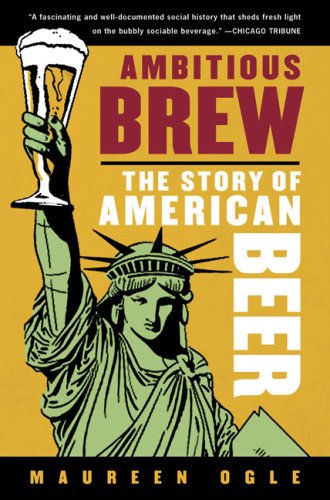1) H.R. 1337 is an excise tax bill, primarily about manufacturer excise taxes om trucks, buses, highway tractors and trailers.
A committee amendment added homebrew beer as a tax exempt.
Senate Report No. 95-1127 from the Finance Committee says in part:
....
2. HOME PRODUCTION OF BEER AND WINE.-- THE COMMITTEE AMENDMENT ALLOWS ANY ADULT TO PRODUCE WINE AND (IF THE INDIVIDUAL REGISTERS WITH **2905 THE TREASURY DEPARTMENT) TO PRODUCE BEER FOR PERSONAL AND FAMILY USE UP TO CERTAIN QUANTITIES WITHOUT INCURRING THE WINE OR BEER EXCISE TAXES OR ANY PENALTIES. THE MAXIMUM AMOUNTS WHICH MAY BE PRODUCED FREE OF TAX ARE 200 GALLONS OF WINE AND 200 GALLONS OF BEER PER YEAR IN A HOUSEHOLD IN WHICH THERE ARE TWO OR MORE ADULTS. IF THERE IS ONLY ONE ADULT IN THE HOUSEHOLD, THE ANNUAL LIMIT IS 100 GALLONS OF WINE AND 100 GALLONS OF BEER. IN ADDITION, THE BILL PROVIDES THAT THE AMOUNT OF SUCH HOME-BREWED BEER ON HAND IN ANY HOUSEHOLD AT ANY ONE TIME (INCLUDING BEER IN PROCESS) MAY NOT EXCEED 30 GALLONS. FOR PURPOSES OF THE WINE AND BEER PRODUCTION LIMITATIONS, THE TERM ‘ADULT‘ MEANS AN INDIVIDUAL WHO HAS ATTAINED 18 YEARS OF AGE, OR THE MINIMUM AGE (IF ANY) ESTABLISHED BY LAW APPLICABLE IN THE LOCALITY IN WHICH THE HOUSEHOLD IS SITUATED AT WHICH WINE OR BEER (AS THE CASE MAY BE) MAY BE SOLD TO INDIVIDUALS, WHICHEVER AGE DETERMINATION IS HIGHER.
....
B. EXCISE TAX TREATMENT OF HOME PRODUCTION OF BEER OR WINE (SEC. 2 OF THE BILL AND SECS. 5042 AND 5053 OF THE CODE)
PRESENT LAW
PRESENT LAW (SEC. 5042 OF THE CODE) PERMITS THE ‘HEAD OF ANY FAMILY,‘ AFTER REGISTERING WITH THE TREASURY DEPARTMENT, TO PRODUCE UP TO 200 GALLONS OF WINE A YEAR FOR FAMILY USE WITHOUT PAYMENT OF TAX. HOWEVER, A SINGLE INDIVIDUAL WHO IS NOT THE HEAD OF A FAMILY IS NOT *5 COVERED BY THIS EXEMPTION (SEE TREAS. REGS. 27 CFR SECS. 240.540 ET SEQ.).
THE BUREAU OF ALCOHOL, TOBACCO, AND FIREARMS INTERPRETS PRESENT LAW (SEC. 5054(A)(3)) AS PROVIDING THAT IT IS ILLEGAL TO BREW BEER IN ONE'S HOME FOR HOME CONSUMPTION. AS A RESULT, THE TAX OF $9 PER BARREL (31 GALLONS OR LESS), WHICH IS IMPOSED ON THE PRODUCTION OF BEER (SEC. **2908 5051(A)), IS DUE AND PAYABLE IMMEDIATELY UPON PRODUCTION. IN ADDITION, THE BUREAU TAKES THE POSITION THAT HOME BREWERS ARE SUBJECT TO THE CRIMINAL PENALTIES IMPOSED BY THE CODE (SEC. 5687) FOR LIQUOR TAX OFFENSES THAT ARE NOT OTHERWISE SPECIFICALLY COVERED.
REASONS FOR CHANGE
THE COMMITTEE BELIEVES IT IS APPROPRIATE TO GRANT A LIMITED EXEMPTION FROM THE BEER TAX FOR THE PRODUCTION OF BEER FOR PERSONAL AND FAMILY USE. THE COMMITTEE ALSO BELIEVES THAT IT IS CONSISTENT WITH THE PRESENT WINE TAX EXEMPTION FOR HEADS OF FAMILIES TO PROVIDE A COMPARABLE EXEMPTION FOR ADULT INDIVIDUALS NOT NOW COVERED BY THIS EXEMPTION.
ACCORDINGLY, THE BILL PROVIDES A LIMITED EXEMPTION FROM THE WINE AND BEER TAXES FOR WINE AND BEER PRODUCED, FOR PERSONAL OR FAMILY USE (AND NOT FOR SALE), BY ADULTS.
EXPLANATION OF PROVISION
WINE
THE BILL MODIFIES THE PROVISIONS OF EXISTING LAW THAT PERMIT HEADS OF FAMILIES TO PRODUCE WINE TAX-FREE FOR FAMILY USE. UNDER THE BILL, THE PRESENT LIMITATION OF 200 GALLONS OF TAX-FREE PRODUCTION IN A CALENDAR YEAR IS TO APPLY IF THERE ARE TWO OR MORE ADULTS IN THE HOUSEHOLD. IF THERE IS ONLY ONE ADULT IN THE HOUSEHOLD, THEN 100 GALLONS OF WINE MAY BE PRODUCED BY THAT ADULT TAX-FREE IN A CALENDAR YEAR. THE PRESENT LAW'S REQUIREMENT THAT ANY PRODUCER OF WINE UNDER THE FAMILY-USE EXEMPTION MUST BE A ‘HEAD OF ANY FAMILY‘ IS REPEALED.
***5 FOR PURPOSES OF THE WINE PRODUCTION LIMITATIONS, THE TERM ‘ADULT ‘ MEANS AN INDIVIDUAL WHO HAS ATTAINED 18 YEARS OF AGE, OR THE MINIMUM AGE (IF ANY) ESTABLISHED BY LAW APPLICABLE IN THE LOCALITY IN WHICH THE HOUSEHOLD IS SITUATED AT WHICH WINE MAY BE SOLD TO INDIVIDUALS, WHICHEVER AGE DETERMINATION IS HIGHER.
IN ADDITION, THE BILL ELIMINATES THE PRESENT-LAW REQUIREMENT THAT THE PERSON PRODUCING THE WINE MUST HAVE REGISTERED WITH THE TREASURY DEPARTMENT.
BEER
THE BILL PROVIDES ESSENTIALLY THE SAME RULES IN THE CASE OF HOUSEHOLD PRODUCTION OF BEER BY ADULTS, WITH THE ADDED REQUIREMENT THAT, IN ORDER NOT TO BE SUBJECT TO THE BEER TAX, THE AMOUNT OF BEER ON HAND AT ANY ONE TIME (INCLUDING BEER IN PROCESS) IS NOT TO EXCEED 30 GALLONS. ALSO, THE BILL REQUIRES THAT THE PRODUCERS OF BEER REGISTER WITH THE TREASURY DEPARTMENT IN ORDER TO QUALIFY UNDER THE HOME BREWING EXCEPTION.
FOR PURPOSES OF THE BEER PRODUCTION LIMITATIONS, THE TERM ‘ADULT‘ MEANS AN INDIVIDUAL WHO HAS ATTAINED 18 YEARS OF AGE, OR THE MINIMUM AGE (IF ANY) ESTABLISHED BY LAW APPLICABLE IN THE LOCALITY IN WHICH THE HOUSEHOLD IS SITUATED AT WHICH BEER MAY BE SOLD TO INDIVIDUALS, WHICHEVER AGE DETERMINATION IS HIGHER.
*6 THE BILL ALSO MAKES IT CLEAR THAT CRIMINAL PENALTIES IMPOSED UNDER FEDERAL LAW IN CONNECTION WITH ILLEGALLY PRODUCED BEER DO NOT APPLY TO HOME PRODUCTION WHICH QUALIFIES FOR THE EXEMPTION PROVIDED IN THIS BILL. THE PROVISIONS DEALING WITH ILLEGALLY PRODUCED BEER ARE AMENDED TO MAKE IT CLEAR THAT HOME PRODUCTION OF BEER THAT DOES NOT QUALIFY FOR THE NEW EXEMPTION IS ILLEGAL.
**2909 EFFECTIVE DATE
THE PROVISION WOULD TAKE EFFECT ON THE FIRST DAY OF THE FIRST CALENDAR MONTH WHICH BEGINS MORE THAN 90 DAYS AFTER THE DATE OF THE BILL'S ENACTMENT.
REVENUE EFFECT
THE PROVISION IS ESTIMATED TO REDUCE BUDGET RECEIPTS BY LESS THAN $1.5 MILLION ANNUALLY, BEGINNING WITH FISCAL YEAR 1979.





